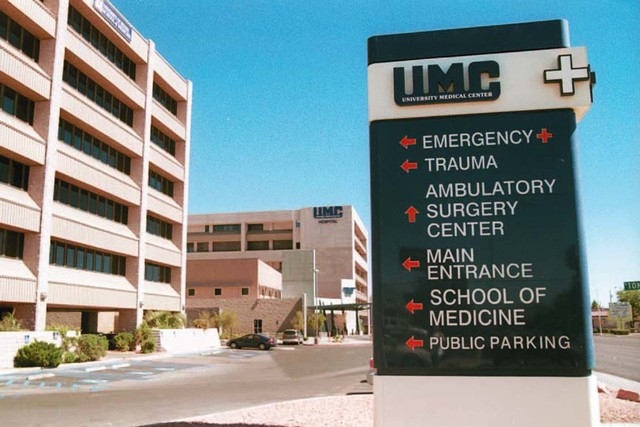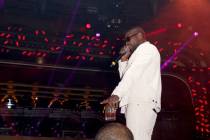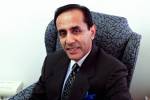Federal report: UMC destroyed evidence
University Medical Center destroyed evidence and its executives made “numerous misrepresentations” about records pertaining to a federal class-action lawsuit against the Clark County public hospital, according to a report issued this week in U.S. District Court.
The 78-page report says that UMC staff “lied about, or at best failed to disclose” several key sources of records. In another instance, the hospital produced emails riddled with Japanese and Korean characters, prompting U.S. Magistrate Judge Penny Leen to call the examples “outrageous” at a February status conference.
The class-action lawsuit, filed in U.S. District Court in July 2012, alleges that employees routinely worked during unpaid lunch breaks, and seeks compensation. The lawsuit involves thousands of current and former employees. UMC faces a potential judgment in the millions of dollars if it loses in court.
Court records show the plaintiffs have struggled for more than a year to get the hospital to properly hand over data and records in the discovery process. During the discovery phase of a trial, parties to a lawsuit are required to hand over relevant records that pertain to the case.
The report was authored by Daniel Garrie, a special master appointed by federal Magistrate Judge Peggy Leen to investigate the gridlocked discovery process and report back on the scope of the information provided and UMC’s role in any failure to preserve records.
Garrie recommends sanctions, noting UMC’s “extraordinary misconduct,” and calls for a summary judgment in favor of about 600 of the plaintiffs suing under federal labor law. There are several thousand other employees in a separate class that falls under state law.
“The level of intentional destruction of evidence by UMC shocks the conscience,” Garrie wrote.
He gives no dollar figure for sanctions and the judge has until Sept. 1 to act on the recommendation.
UMC hasn’t yet filed an objection to the report, which could delay a decision.
Garrie wrote in his report that UMC’s executives “made statements ranging from misrepresentations to deliberate falsehoods, despite being given multiple opportunities to correct these statements. … This pervasive misconduct by UMC delayed these proceedings and substantially increased its costs.”
So far, the cost of the special master’s services, which is UMC’s responsibility, is in excess of $300,000.
UMC spokeswoman Danita Cohen declined to comment, citing the pending litigation.
“This is a case about wage theft, and we respect the special master’s final report and recommendation and we will defend it against any objections,” said Jon Tostrud, an attorney for the plaintiffs.
Garrie flags multiple problems in his report with UMC’s efforts to preserve and provide relevant data, much of it systems used for tracking employee work hours.
Among Garrie’s findings:
— The office of UMC’s former chief executive officer, Brian Brannman, received two letters to preserve records in 2012. Yet Brannman, in a sworn statement this May, said he wasn’t aware of the instructions until his human resources chief contacted him in April 2013. The hospital sent out an email in April 2013 notifying employees to preserve records. However, an August 2012 email between two UMC staffers shows the hospital had received the correspondence.
— Lawrence Barnard, who was promoted to chief executive officer in February, stated in April testimony that if he received any notice to preserve testimony it “would have been in a hallway in passing, someone saying, ‘We need to preserve based on this case,’ and (Barnard) saying, ‘OK, preserve what we need to preserve.’”
“The nonchalant attitude to preservation evidenced in this testimony is reflective of UMC’s widespread failure to take its duty to preserve seriously,” the report says.
— UMC provided incomplete records from a U.S. Department of Labor investigation into the matter, presenting them as complete. But the plaintiffs’ attorneys later discovered through a Freedom of Information Act request filed with the federal agency that other extensive documents were withheld.
— The hospital lost or deleted electronic information that’s likely relevant to the case that was stored on mobile devices, computers, and a drive. The data included text messages and thousands of files.
— UMC officials didn’t disclose several key timekeeping systems with electronic information until three months after proceedings with the special master began. The hospital also had said it was unable to generate electronic spreadsheets from a time-keeping system, when it had already done so for the Department of Labor investigation.
The hospital serves indigents who cannot afford medical care and also has a trauma center and burn center. It has a staff of 3,400 employees and announced this week it is reducing its workforce by 285 positions.
Facing financial struggles, the hospital has a county subsidy of $71 million, up from $41 million. County officials have pushed for the subsidy to be reduced next year.
Contact Ben Botkin at bbotkin@reviewjournal.com or 702-405-9781. Find him on Twitter: @BenBotkin1.




























